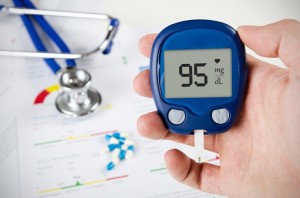FDA approves surgically implanted device to treat obesity
The device works by sending electrical pulses to the abdominal vagus nerve, which signals to the brain whether the stomach feels empty or full.
The Maestro Rechargeable System, the first FDA-approved obesity device since 2007, has been permitted to treat patients aged 18 and over who have struggled to shift the pounds with a weight loss program.
To be eligible for treatment inclusion, patients have to have a body mass index (BMI) of 35-45 with at least one other obesity-related condition, such as type 2 diabetes.
According to the Centers for Disease Control and Prevention (CDC), one third of all US adults are obese. These obese individuals are at a higher risk of suffering from heart disease, stroke, type 2 diabetes and particular cancers.
Dr. William Maisel, deputy director for science and chief scientist of the FDA's Center for Devices and Radiological Health, says:
"Obesity and its related medical conditions are major public health problems, medical devices can help physicians and patients to develop comprehensive obesity treatment plans."
The Maestro Rechargeable System, manufactured by EnteroMedics of St. Paul, MN, comprises a rechargeable electrical pulse generator, wire leads and electrodes, which are implanted into the abdomen. The devices work by sending intermittent electrical pulses to the abdominal vagus nerve, which is involved in regulating stomach emptying and signaling to the brain that the stomach feels either empty or full.
It is known that electrical stimulation blocks nerve activity from the brain to the stomach. However, the specific mechanisms for weight loss due to use of the device are unknown.
Active device group lost 8.5% more excess weight than control
A clinical trial consisting of 233 patients with a BMI of 35 or more was conducted to evaluate the safety and effectiveness of the Maestro Rechargeable System. The weight loss and adverse events of 157 patients who received the active device were compared with 76 patients in the control group who received a device that was inactive.
The study found that after 12 months:
- The experimental group lost 8.5% more excess weight than the control group
- 52.5% of the patients in the experimental group lost at least 20% of their excess weight
- 38.3% of patients in the experimental group lost at least 25% of their excess weight.
The original endpoint of the study was for the group with the active device to lose at least 10% more excess weight than those in the control group - this was not met.
However, an FDA Advisory Committee (the Gastroenterology and Urology Devices Panel) found the 18-month data supportive of sustained weight loss and agreed that the benefits of the device outweighed the risks for use.
While reviewing the benefits and risks of the Maestro Rechargeable System, the FDA considered the recommendations of the Advisory Committee and additionally examined an FDA-sponsored survey relating to patient preferences of obesity devices.
The survey indicated that the group of patients were willing to accept the risks associated with the surgically implanted device for the amount of weight loss it was expected to provide.
As part of the FDA-approval regulations, the manufacturer must conduct a 5-year post-approval study to monitor at least 100 patients. Data must be collected on safety and effectiveness including weight loss, adverse events, surgical revisions and explants and changes in obesity-related conditions.
Serious and other adverse events reported in the clinical study include:
- Nausea
- Pain at the neuroregulator site
- Vomiting
- Surgical complications
- Heartburn
- Problems swallowing
- Belching
- Chest pain.
The FDA protects public health by assuring the safety, effectiveness and security of drugs, vaccines, biological products and medical devices for human use.
Medical News Today recently reported that obese individuals who undergo weight loss surgery might have lower risk of death in the 5-10 years following the procedure than those who do not have the surgery, according to research published in JAMA.
Written by Hannah Nichols-
Lose Weight and Keep it Off
Many people understand the basic mechanics of weight loss – r
-
What is All the Fuzz About Thin and Beautiful
We witness today抯 popular beliefs putting much emphasis on our we
-
Diet Pills And Effective Weight Management
Trying to lose weight for some years now! Tired of sweating in a gym?
-
Weight Loss Diets Tips That Help You Lose Weight
In fact, national health surveys show Am
-
Fat Loss Advice That Will Give You Back Your Figure!
Avoid any fat loss technique or plan tha
-
Weight Loss Hypnosis Combined With Diet Planning Leads To Success
Many people have begun using hypnosis for weight loss. This is a metho
- DON'T MISS
- Easy Weight Loss - Weight Loss Secrets
- Dont Give Up On Weight Loss
- Effective and Proven Ways To Get Rid Of Flabby Stomach
- Best Way to Lose Weight - Significant Things You Should Know
- Do Nutritional Supplements Support Weight Loss?
- Weight Loss by Telephone? It Works and Here’s Why.
- 2 Insanely Effective Ingredients to be able to Lose Your Fat Such as Insane and also Improve Your Well being Within the Process!
- 7 Tips For Natural Ways To Lose Weight
- Weight Loss Tea, Natural and Healthy
- Rules In Losing Weight




